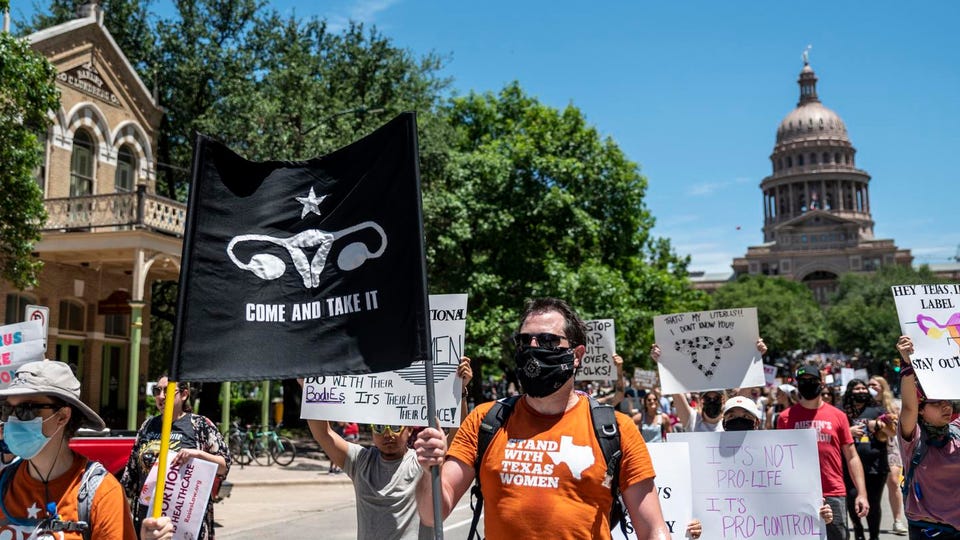Answers to Question About the Texas Abortion Law
By Chloe Robinson
Texas has implemented a law banning abortion six weeks after pregnancy, thus dubbing it the most restrictive abortion state in the country.
Despite the Supreme Court decision of 1973 which granted a constitutional right to abortion, many US states have passed laws like Texas’s. The court refused to block the law on a vote from 5 to 4 on September first.
This law faces legal action, yet the way that the law was written poses difficulties to it being challenged in court. The design is structured in a way that makes it difficult to use Roe v Wade as a counterargument, as the law prohibits state officials from actually enforcing it.
Elizabeth Nash, state policy analyst for the Guttmacher Institute, an organization supporting abortion rights, said, “These laws are unconstitutional, as we have understood Supreme Court rulings until now, and courts have quickly issued preliminary injunctions blocking enforcement.”
The Texas law is revolutionary because it is the first anti-abortion law that has actually been put into effect.
The law asserts that abortion is illegal after an embryo exhibits cardiac activity, which is commonly seen within the sixth week of pregnancy. This timeframe is 18 weeks earlier than the legal standard set by Roe v. Wade, which allows abortion up until about 24 weeks, the point at which a fetus can survive independently outside of the womb.
The law comes under even more scrutiny as it is acknowledged that at the point a woman misses her period, and even questions being pregnant, she is deemed four weeks pregnant. There are a large number of women who are completely unaware they are pregnant at six weeks.
Experts noted that many women are unaware of their normal menstrual cycle behaviors and also may have irregular periods — making it incredibly hard for them to notice a missed period and make a decision quick enough in the two week time-frame they’re granted.
Dr. Jennifer Villavicencio, lead for equity transformation at the American College of Obstetricians and Gynecologists, emphasized this: “It is extremely possible and very common for people to get to the six-week mark and not know they are pregnant.”
Abortion providers approximate that 85 percent of patients seeking abortion are at least six weeks pregnant. This new law will prohibit them from getting the termination.
The cardiac activity ultrasounds show at week six is not equivalent to a true heartbeat, but rather electrical activity. The sound doesn’t determine whether or not the fetus is viable, explained Villavicencio.
A large portion of the pro-choice debate comes back to the concept of rape and incest, which does not impact the rules of the new Texas law. Abortions are allowed for health reasons, but this is rare as an abortion will only be permitted if the pregnancy will cause risk to the mother’s life.
Nash explained how the language of the law does not cover every instance in which a woman’s health might be at risk. “Health providers will be very conservative about interpreting the law, because they don’t want to cross a line,” she said.
The law will be enforced by citizens, putting anyone from an Uber driver who transports a woman to an abortion to someone who actually performs the abortion.
Even citizens who have no connection to the patient or the clinic are encouraged to sue and are provided legal fees, as well as a $10,000 incentive if they win in court.
There are vulnerable populations who are suffering disproprotionately from this law: teenagers, who usually do not recognize their pregnancy until it’s too late, low-income citizens, who need to muster up $550 to even pay for the procedure; and people of color, who comprise about 70 percent of abortion-receivers in Texas as of 2019.
Because minors must receive parental permission before getting an abortion, and often must go to court to do so, the delays increase, as does the danger of this law in terms of teenagers.
Black women in Texas already face high maternal mortality rates, and this law concerns many activists who fight for safe abortion care for people of color. Similarly, undocumented women are not granted the leisure to move around the country to find abortion care.








